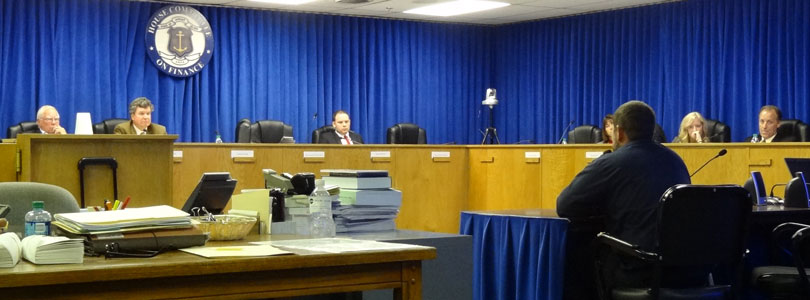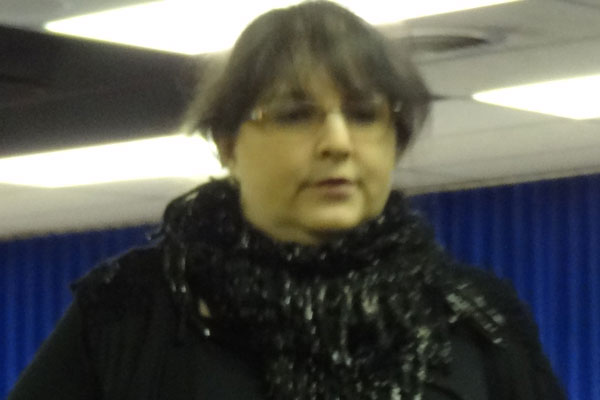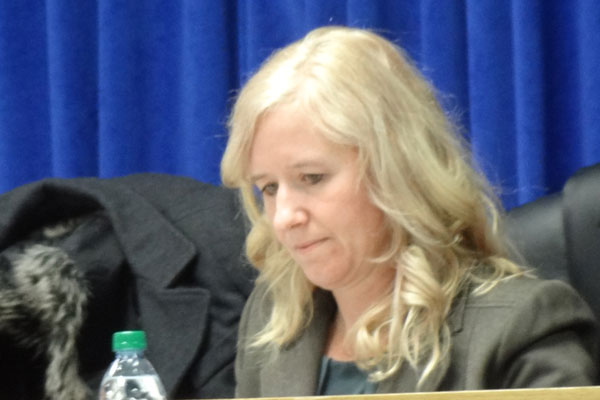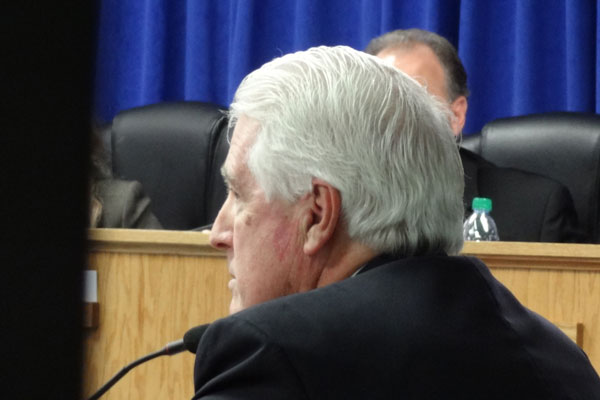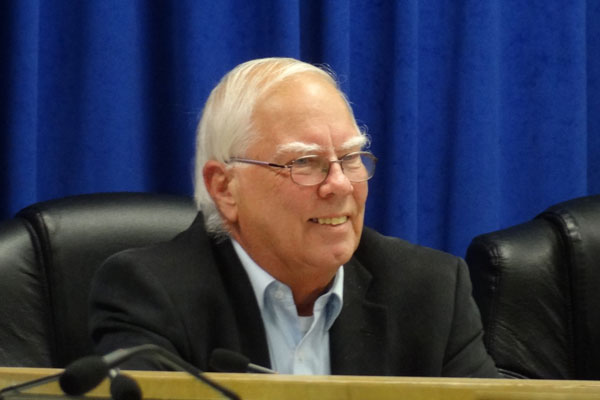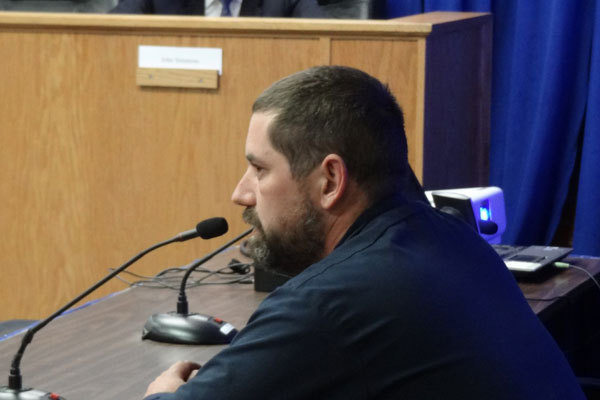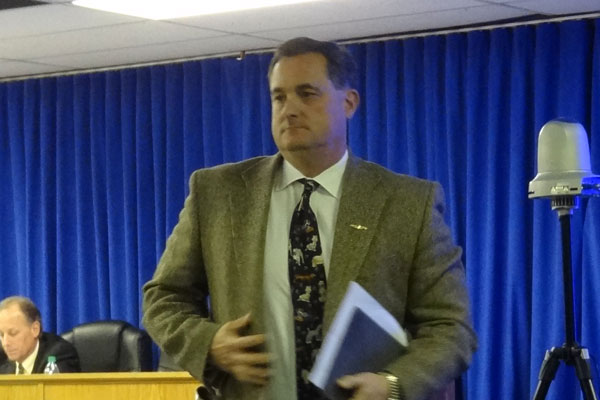10/29/13 – Sales Tax Commission
4:03 p.m.
Here we are again, this time in the House Finance room, number 35 in the basement.
4:09 p.m.
First up is Lee Ann Sennick. Right into testimony.
She’s saying that the City of Woonsocket, right on the border, could fill its “empty shopping plazas” if Rhode Island were more competitive owing to an absence of a sales tax. She brings with her a letter stating as much from the Blackstone Business Alliance.
“The status quo cannot be maintained, and we cannot continue to keep looking to taxes. Her employer sells food and limits any expansion of its goods so as to avoid having to collect sales taxes.
4:13 p.m.
Commission member Kate Brewster, of the Economic Progress Institute, references Sennick’s mention that eliminating the sales tax would be “a small step” in reforming tax code, while Brewster says it would be “a big step,” given the $900 million price tag.
In reply, Sennick ran through a dizzying list of taxes that Rhode Islanders pay.
4:14 p.m.
Next up is Larry Girouard, who has nearly half a century of experience in manufacturing and is now the leader of RI Taxpayers (formerly the RI Statewide Coalition).
4:16 p.m.
“The health of the State of Rhode Island is aligned with the health of the business community.” He says our state’s “brand” is as extremely unfriendly to businesses.
4:18 p.m.
Girouard notes all the loss of businesses and anything but low-income jobs. “We are driving away our intellectual capital.”
4:20 p.m.
He says he has a hard time explaining to people why they should set up shop in Rhode Island. “If we were equal” on competitiveness with our neighbors, he believes our other assets will lead our economy out of the woods.
4:22 p.m.
Sen. Walter Felag asks whether Girouard thinks the sales tax is definitely the tax to target.
Girouard thinks eliminating the whole tax might disrupt revenue flow, but he does think the sales tax should be part of a tax reform package.
4:23 p.m.
Felag is referencing his own legislation to decrease the gas tax and the inheritance tax. (Those are all very minor tweaks; I’d wager the boost from taking those steps would be so minimal as not to make the political battle worthwhile.)
4:24 p.m.
Girouard says his kids have moved out of the state because they couldn’t find jobs. Meanwhile, he and his clients do not feel “fiscally safe” in Rhode Island.
4:26 p.m.
Asked directly, Girouard waffles on eliminating the entire sales tax, suggesting just a lower rate.
4:27 p.m.
Director of Revenue Analysis Paul Dion asks Girouard to define “reform” as he’s using it. It sounds like he means reductions and streamlining. “Reform means change.”
4:29 p.m.
Dion references the increase of the estate tax “exemption” and the 2010 income tax reform of 2010. (Frankly, those where really piddling deals… as evidenced by the fact that the leader of a statewide taxpayer group doesn’t know about them. The income tax reform, for example, wound up being a tax increase. These technocratic little picking things do not change anything significantly.)
4:31 p.m.
Sen. David Bates clarifies what Dion said about the estate tax, correcting that Rhode Island’s estate tax policy is not an exemption, but a threshold, at which point the family pays taxes on every penny down the line.
4:33 p.m.
Chairman Jan Malik chimed in to respond to Dion’s statement that “you can’t compete with the weather,” by which Dion meant that people move to Florida for sunshine. Malik’s point is that people also move there to save on income tax.
4:25 p.m.
Steve DeToy from the Rhode Island Medical Association is up, on behalf of 2,600 members of the medical society in office-based practices. He says the General Assembly passed a two percent gross receipt tax on imaging services and office-based surgery. He says that tax was scored to take in $4 million, saying the real bite has been bigger.
4:38 p.m.
He notes that such taxes have to come right off the tax of a business’s revenue.
4:40 p.m.
Jeff Taylor is speaking on behalf of the state Radiological Society.
4:41 p.m.
As he states, this is a bit out of the scope of the commission. Personally, I kind of have to marvel at the thinking that getting in front of rank-and-file legislators on a topic by any means possible can have an effect on policy. It’s like trying to sell cat litter at a dog and pony show.
4:43 p.m.
And why in the world are they running the air conditioning? It’s freezing in here.
4:50 p.m.
Malik clarifies that he agreed to let these two testify because he wanted another illustration of how taxes affect businesses and harm the Rhode Island economy.
“The public is not stupid. They’re in business to make money, and if they’re not going to make it in Rhode Island, they’re going to open across the border in Massachusetts or Connecticut.”
4:53 p.m.
Mike Puyanna of the RI Tea Party is up, and he says the number he wants to convey is the 240 yards (or something) that it took “a lady friend” of his to list all of the taxes and fees she pays as a small-businesswoman during a recent stroll.
4:55 p.m.
He says what’s important isn’t to raise or lower this tax or that tax; “it’s the attitude of this state of ‘Oh, no, we can’t do this. We have to hold on to what we’ve got.'” He lists some of the anecdotes that so many Rhode Islanders have of people he knows moving their businesses right over the border. In fact, a moment ago, Malik said he’s having foot surgery soon, and his RI doctor sent him to Attleboro, MA, for the procedure.
4:58 p.m.
“It’s about changing our attitude in this state.”
4:58 p.m.
Next witness is Ted Vecchio, a business owner from Cumberland, of a family business established in 1970, repairing trucks.
“As a business owner, it’s very difficult for me to work for no money. I have to be competitive with all of my local competitors, and I also have to be competitive with Mass., Connecticut, New York, wherever you want to talk about, and I can’t be competitive because of the sales tax.”
5:00 p.m.
He notes that it takes some people months to pay their bills to him, but he has to pay the sales tax within 30 days.
5:01 p.m.
Mr. Vecchio is choking up a bit, saying that his three employees are able to be as productive as his parents’ 13 employees because (1) they are passionate about staying open and (2) they just work more to make the numbers work.
When one of their biggest accounts went bankrupt (Ocean Fresh Seafood), his father didn’t take pay so he could pay him and his brother.
5:03 p.m.
“I don’t like asking for help, but this is worth asking for.”
5:05 p.m.
He notes the difficulty of making up the tax revenue if the sales tax is eliminated, perhaps even affecting school funding. “But we’re last, anyway.”
5:06 p.m.
He says his two oldest children went to public schools, but had trouble. So now he sends his younger two to St. Ray’s school. “I have no business sending these kids to St. Rays; I can’t afford it.”
But, he says, you innovate and find ways to make ends meet.
5:07 p.m.
“The burden and the blackmail that the state of Rhode Island puts on us is unbearable.”
He says the business has never been audited in 42 years, but in June they got an audit letter for the sales tax. He’s researched a lot of the laws around taxation, and “I’m scared that I’m not going to be able to do it, and I’m going to have to look at my father and say, ‘I got to close.'”
5:09 p.m.
“I feel like you guys have been against me, and I don’t want to feel that way.”
5:10 p.m.
Committee Member George Tamer says that the good thing about this committee is that it’s a mixed committee, and he’s a businessman, himself.
5:11 p.m.
Anne Dupere of Sakonnet Grooming in Tiverton is up. Her business now pays 15 different taxes. (Here’s Rhode Island, for you. A few months ago, I found myself climbing the dog ramp into her grooming tub because my rather large dog wasn’t cooperating.)
She says her type of business is among the first offering services newly to be taxed in the same way as goods.
Since the sales tax on pet grooming in RI, seven salon businesses can no longer compete and have closed, even though her industry is growing well beyond inflation.
5:15 p.m.
She finds it especially galling that she has to pay a credit card fee on a tax.
5:16 p.m.
“Grooming is not a luxury; it’s a health issue.” She says she’s losing business to a salon right over the border, three minutes away. She says she can’t add services, now, or hire, because she’s struggling.
“The open buildings down the road in Massachusetts have become more and more appealing as my lease is expiring.”
5:18 p.m.
At regional industry events, she says Rhode Island groomers hedge and shuffle their feet when asked how they’re doing. Her Massachusetts peers, on the other hand, talk about how business is booming.
5:19 p.m.
Charles Callanan, of a Rhode Island animal medical center. Sees Rhode Island in “an economic death spiral.” (Kind of scary how common that metaphor is.)
5:20 p.m.
He talks about the continuing exit of businesses, leaving fewer taxpayers, so the government expands taxes, driving more people out.
[Just a note, here, to express my… I guess… aesthetic distaste for this whole scenario. Here you have private businesses and Rhode Island residents coming to a government commission to ask the government to stop taking money from them. It’s like a petition of some feudal lord who can just go ahead and take money and impose rules on us all, and the way politics operate here, there’s really no chance to change any of it through democratic methods. So you end up begging a commission, whose cumulative influence relative to the bureaucracy and the legislative leaders is akin to that of a rock band fan club president, for some small favor of letting you keep the money you earn. Disgusting.]
5:25 p.m.
Back to testimony: Callanan says the state is creating a black market for pet sitting and grooming. He dares the commission to go to Craig’s List and type in “pet sitting.” Those ads, he bets, wouldn’t lead to fully licensed and taxpaying businesses.
5:27 p.m.
He brings it back to basics: They’re in business to support their families. He closes by saying that his new business in Massachusetts is thriving.
5:29 p.m.
John Simmons of RIPEC asks for Callanan’s pro forma analysis for setting up in Massachusetts versus Rhode Island. Callanan adds that there’s more than taxes. His Massachusetts business was up and running quickly; in Rhode Island, he’s spent months waiting for fights over parking spaces to resolve themselves.
5:31 p.m.
Malik asks if Dupere has ever considered moving over the border into Fall River. Her reply shows that she’s actually done quite a bit of research along all of the roads that would still serve her Tiverton client base in other Massachusetts towns.
5:34 p.m.
Responding to a question from Malik, Callanan says that a pet won’t incur sales tax for a medical procedure, but if the veterinarian or an assistant cuts its nails, puts it up for the night, takes it for a walk, then those would be taxable services.
5:36 p.m.
Mike Stenhouse, from the RI Center for Freedom & Prosperity, is closing out the evening and says he’s pleased to be testifying last because what he says will now have real faces as illustration.
5:43 p.m.
I had to step away during the beginning of Stenhouse’s testimony to make sure the world premier of my new video on a Rhode Island business would work well. (There’s a technology challenge though, running a video off an old laptop and a microphone to its speaker going over the room’s PA system.)
5:49 p.m.
With the video over, Stenhouse is harkening back to Puyanna’s call for a change of attitude.
He says the Center is also suggesting, in addition to eliminating the sales tax, that the legislature should investigate the laws and regulations that create fines and interest.
5:58 p.m.
Dion pretty aggressively questioned Stenhouse about whether Don Russell (the subject of my film), who ran into trouble for not submitting his sales taxes, was misrepresenting to his customers that he was collecting sales tax while not doing so.
I’d have a few points on that. First, the film showed Don saying that he ran into trouble and admitted his fault. (In testimony, he declared that he had done a wrong thing.)
Second, Dion’s in potentially dangerous territory, here. Rhode Island state law provides for a 50% penalty on unpaid taxes if the tax administrator finds evidence of fraud or an intent not to pay. In Don’s case, he was assessed the regular 10% fee, meaning it was just a delinquency. There’s a difference between fraudulent activity and poor bookkeeping during a recession.
Third, Dion went on to talk about the potential for tax amnesties, in which the government accepts a reduced payback of the outstanding balance while forgiving the rest. But the interest is assessed every single month, so how long should business owners watch the balance climb in the hope (again) of leniency from the feudal lord?

